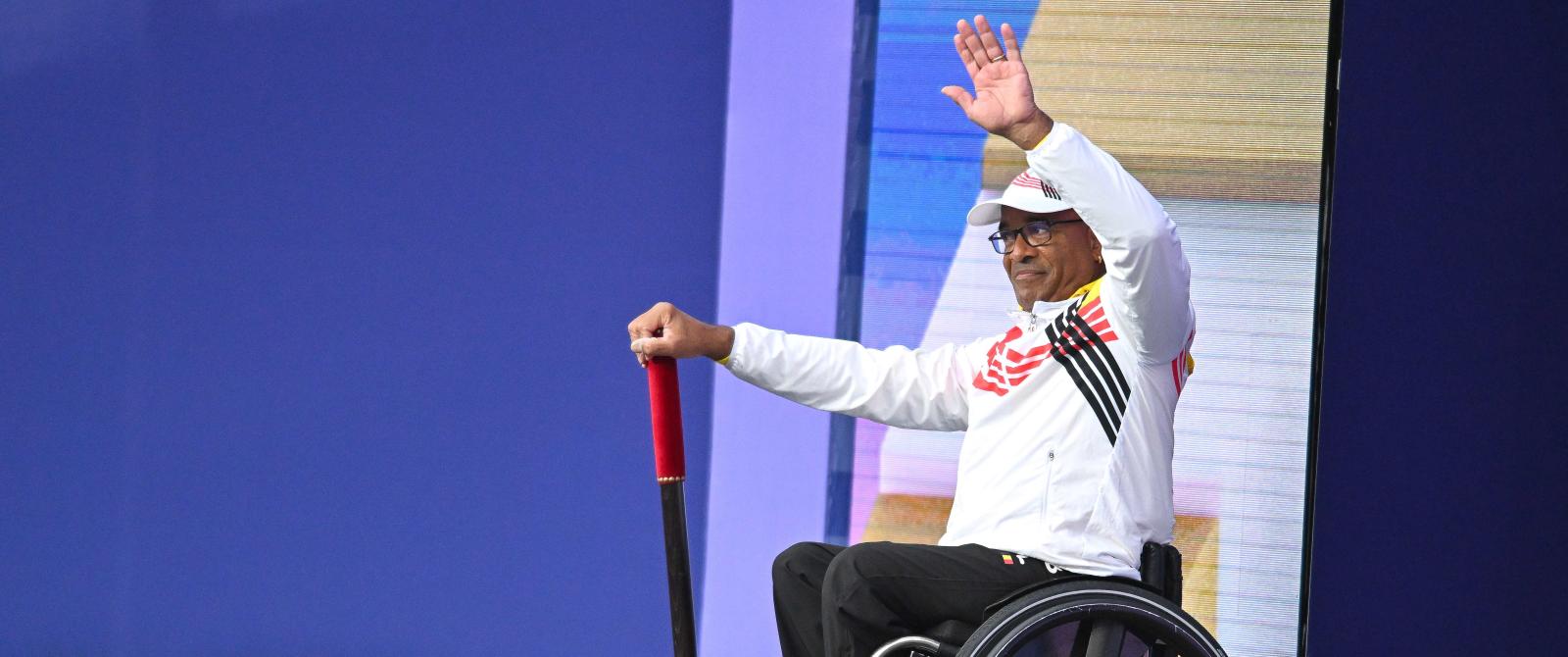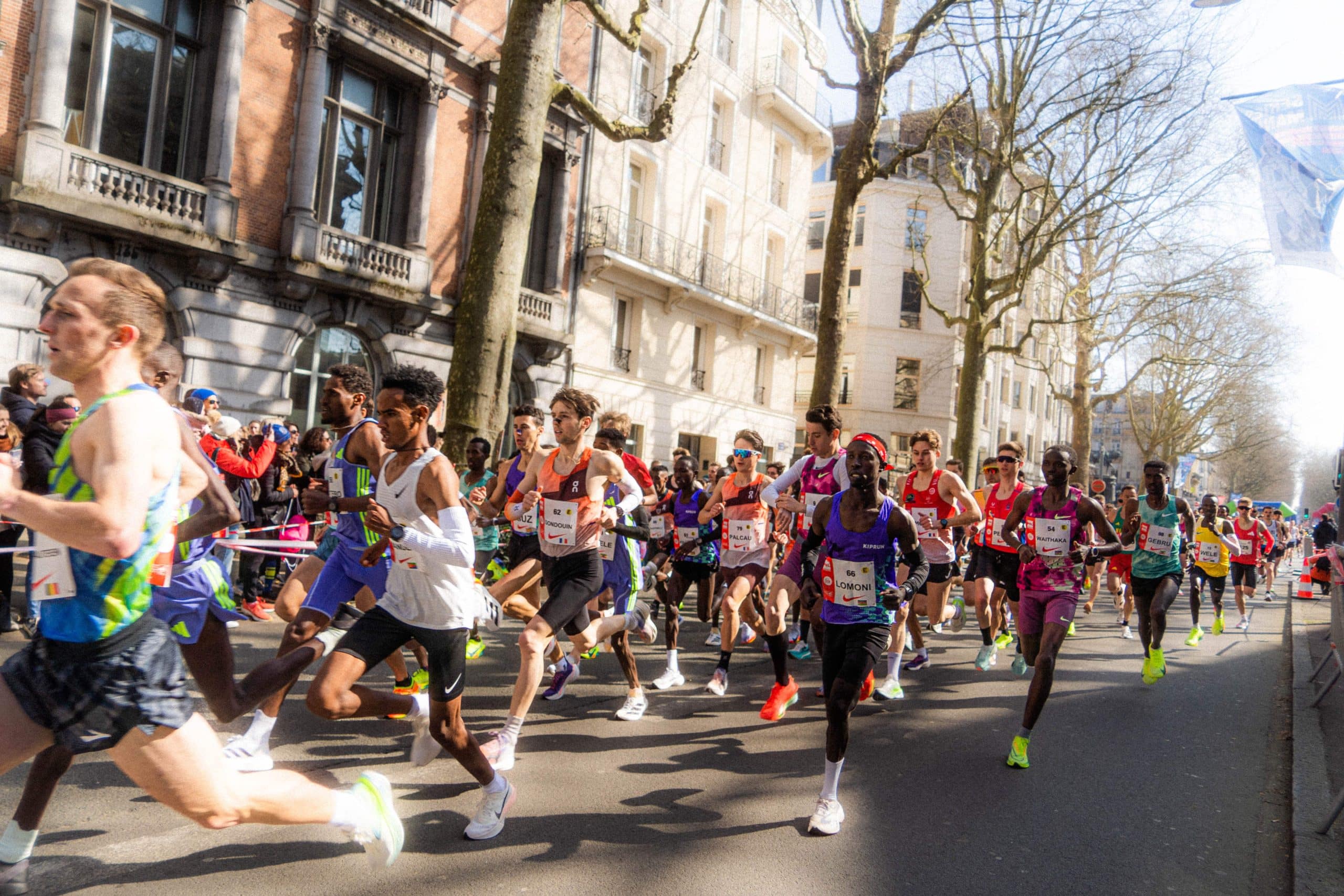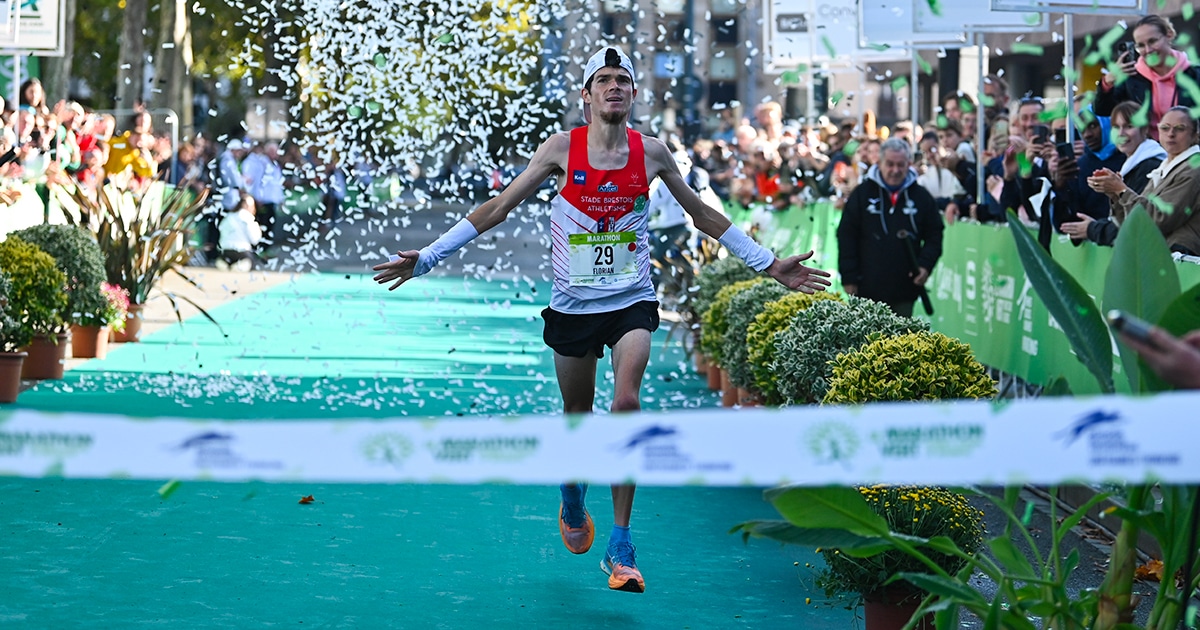In search of the anti-Strava: those runners who shun data
In an era where every run is tracked, analyzed, and compared on Strava, Garmin, or Nike Run Club, a peculiar breed of runners persists: the anti-Strava. These are the runners who go without the watch, the app, the pursuit of likes or kudos. They run just for the joy of it and for reasons less understood. An anomaly? More like a resistance for the “happy run.”
For many, nearly 4 million people in France, Strava is more than just a tracking tool: it’s a social network, a space for comparison, and at times a source of pressure. In a world where every step is tracked, every outing is timed, and every performance dissected, a peculiar tribe lingers in the shadows: the anti-Strava. These are runners who reject the tyranny of statistics, who stash their smartwatches in the drawer, and repel the easy like gratification and automatic kudos. Their motto? Run freely, without a stopwatch or a segment to validate. They run for themselves, and themselves only. An endangered species? Not quite.
In the face of ultra-digitalization in sports, a mild rebellion sweeps across the pavement and trails. A new way of running emerges: more free, more instinctive, more disconnected. “I uninstalled Strava after catching myself sprinting the last few meters of a run just to improve my average time,” says Pierre, a weekend marathoner who decided to unplug. “It didn’t make sense anymore. I was running for the app, not for myself.” And this former Strava user is not alone. Hard to quantify, yet more joggers have decided to leave the app following various disappointments.
This race for stats sometimes turns a simple run into a quest for validation. Some force themselves to run faster or longer just to display an impressive line on their profile. Others cannot bear to have a “failed” outing in their history and end up deleting their bad workouts. But some runners begin to take a step back. Some completely uninstall Strava, others decide not to share their runs anymore. A return to basics, far from constant comparisons and the need for digital approval.
| “Today, Strava no longer exists, and running is much more enjoyable”

A testimony from an anonymous runner on Reddit perfectly illustrates the shift many running enthusiasts experience in the face of hyper-connectivity. Initially seen as a practical tool to analyze performance and share runs with friends, Strava progressively becomes a comparison machine, where every stat, from elapsed time to heart rate, becomes an evaluative criterion. “I used to consider Strava as the best way to track my training, hold myself accountable, and celebrate my friends, but it has recently become a comparison machine and it’s not healthy,” reports this user on this giant forum where people exchange on all topics, including running.
“I focus on moving time versus elapsed time, pace variations, heart rate, and, of course, whether others will be impressed. Today, Strava no longer exists, and running is much more enjoyable. When I started running, I didn’t use Strava – I didn’t track my runs at all – and I remember it was so much more fun. I’m not a sponsored athlete or anything, so ultimately, what I do doesn’t really matter. Just that I do it. I still use a watch, mind you, but no more sharing. Anyway, who cares?”
The author of these words clearly highlights a growing phenomenon: the loss of spontaneity in running, replaced by a quest for social validation. What was once a mere physical activity becomes a source of pressure, to the point where some forget why they started running in the first place. However, behind this disillusionment lies a realization: freedom from data tyranny allows runners to rediscover a more authentic run. The author doesn’t entirely abandon technology – they keep their watch for personal tracking – but chooses to no longer share their runs, as a return to the essentials. And it concludes with an almost provocative question: “Anyway, who cares?” A reminder that, at its core, running is above all a personal pleasure, not a performance to showcase.
| The grand return of the “Happy Run”
More and more runners are advocating for a more instinctive approach to running, like listening to their body rather than their watch. Feel the wind, the effort, the stride, without any statistics interfering with the moment. This is what some call the “Happy Run”: a run with no specific goal, just for the joy of movement. No stopwatch, no competition, no post-run analysis… just a desire to enjoy the moment.
Marie, a trail enthusiast, made the radical choice not to record anything anymore: “Before, I would never go out without my Garmin watch,” confesses the thirty-something. “Then one day, it broke down, and I rediscovered what it was like to run without knowing how many kilometers I had done. I felt a real sense of freedom. Now, I do Happy Runs several times a week, just for the fun of it.” The “Happy Run” isn’t just a stroll in sneakers. It’s a jog, a breath of fresh air, pure enjoyment. It’s the outing where you ditch “no pain, no gain” for a good old “I run as I like.”
One day, my Garmin watch broke down and I rediscovered what it was like to run without knowing how many kilometers I had done
Marie, budding trail runner
Some take the opportunity to head out without a set route, running by feel. Others listen to ultra-relaxed music (yes, you can run while singing along to Céline Dion). Still, others improvise a running tourist trip, discovering a new neighborhood or a patch of nature. It’s about stopping the comparisons with others. Accepting that some days, you just want to jog without pushing yourself to the limit. Enjoying the moment, rather than trying to prove something to an app.
It seems that Happy Runs even boost motivation. When you no longer run under pressure, you rediscover why you love it… and you return to it with pleasure. The Happy Run is allowing yourself to slow down, to have fun. To jog one day and sprint another, just because you want to. And paradoxically, by running more freely, you often progress better. Less pressure = more pleasure = more consistency. QED.
|A rebellion against “everything connected” or total disconnection?
Far from virtual podiums and records to beat, these asphalt rebels advocate for a return to basics. Running for yourself and not for social validation. Some even go as far as rejecting music or headphones, preferring the raw sound of their breath and footsteps. This approach, called “meditative running”, promotes total immersion in the moment. Feeling your stride, listening to the wind, experiencing effort without distractions. Some even describe it as a near-spiritual experience.
Of course, not everyone is ready to give up the stats. Apps have enabled immense progress, especially for beginners or those preparing for specific goals. But as running becomes ultra-digitalized, a counter-culture wind blows through. Even among Strava users, a new trend is emerging: that of voluntary anonymity. Some runners choose not to publish their runs or hide their performances to avoid all comparisons. Others opt for pseudonyms, thus blurring the lines between performance and the simple enjoyment of running. And what if the future of running was not in big data, but in a return to pure pleasure?
Leave your watch at home (or at least hide the screen). Put on your sneakers. Go out. Run without a plan and without worrying. And most importantly: come back with a big smile. Because in the end, that’s what makes the perfect run.
So, next time you go for a run, ask yourself: are you running for yourself or for your followers? How about trying a Happy Run, just to see?



